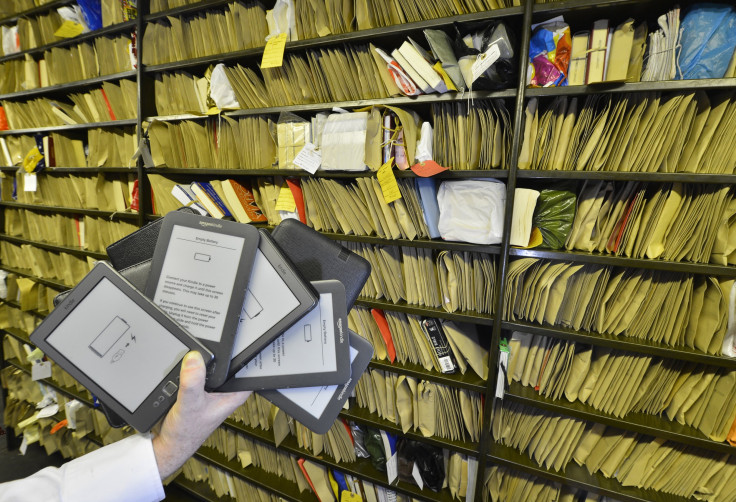E-book Prices Too High, Amazon Says Customers Shouldn't Pay More Than $9.99 Amid Hachette Dispute

Amazon.com Inc. (NASDAQ:AMZN) has called for Hachette, one of the largest book publishers in the world, to cut its e-book prices in the latest shot in the ongoing war between the two companies.
Frustrated readers and authors have been left out in the cold as a result of the monthslong dispute, which began when Amazon attempted to convince Hachette to enter a business agreement on Amazon’s terms. When that didn’t happen, Amazon began pushing back ship times for Hachette orders by weeks and removed some of its books from preorder listings. The drama has been a dividing point between highbrow and lowbrow literary circles, with authors Donna Tartt, Stephen King, John Grisham, James Patterson and more than 100 others signing an open letter criticizing Amazon’s actions.
Richard Russo, the popular author of “Empire Falls,” “Nobody’s Fool” and others, previously told International Business Times that “it’s also true that many writers feel at least a degree of ambivalence. Our publishers have been screwing us on e-book royalties for a very long time.”
In a post Tuesday afternoon, though, Amazon tried to make its case to customers by explaining that the core problem is Hachette’s refusal to lower e-book prices to $9.99. The e-commerce behemoth, which became one of the 10 largest American retailers earlier this month, said it’s only trying to take 30 percent of e-book revenue (a common requirement for digital stores), while pricing only a “small number of specialized titles” at more than $9.99.
“With an e-book there’s no printing, no overprinting, no need to forecast, no returns, no lost sales due to out-of-stock, no warehousing costs, no transportation costs, and there is no secondary market – e-books cannot be resold as used books,” the company wrote. “E-books can be and should be less expensive.”
The company bulletin also said that with sales so dependent on the few dollars that make a $9.99 e-book more attractive than a $13.99 book, for instance, Hachette would actually benefit from lowering e-book prices to under $10.
“When the price goes up, customers buy much less,” the Amazon Book Team noted. “For every copy an e-book would sell at $14.99, it would sell 1.74 copies if compared at $9.99. So, for example, if customers would buy 100,000 copies of a particular e-book at $14.99, then customers would buy 174,000 copies of that same book at $9.99. Total revenue at $14.99 would be $1,499,000. Total revenue at $9.99 is $1,738,000.”
Amazon’s blog post, while not specifically blaming collusion for the higher prices, comes after Apple Inc. (NASDAQ:AAPL) executives allegedly met with higher-ups at five of the largest U.S. book publishers to discuss how they could knock Amazon e-books off of what one executive called “the wretched $9.99 price point,” as quoted by the Wall Street Journal. The book publishers, including Hachette, were the subject of a Department of Justice lawsuit but quickly settled out of court while admitting no guilt in the price-fixing scheme.
© Copyright IBTimes 2024. All rights reserved.




















